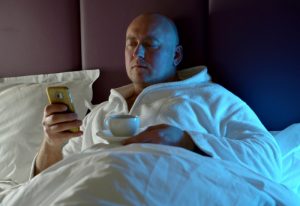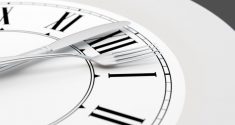Your diet affects your health in a variety of ways. In addition to the known effects of what you eat on your weight and overall nutrition, several studies have found that your diet can affect your immune system and your risk of developing a variety of diseases. New research has discovered that there is also a link between the foods you choose and the quality of your sleep. Can too many refined carbs cause insomnia and other common sleep disorders?
Carbohydrates: Health Food or Foe?

Although no one disputes that sugar should not be considered a food group, low-carb diets are somewhat controversial. Because meat and saturated fats have been linked to heart disease and other health maladies, many question whether eating a larger proportion of these foods can really benefit health. After all, if we cut back on carbs then we will need to eat more of other types of food that may also carry some kind of risk.
The controversy about whether carbs are a cheap source of nutrition or a health risk is about to get hotter. New research has found that certain dietary choices, including eating a diet high in carbs, may negatively affect your sleep.
Links Between Food and Sleep
Several recent studies have found a link between eating habits and sleep. We know that obese people do not sleep as well as those who are at a healthy weight. In addition, eating shortly before bed appears to make it harder to fall asleep.
Our food choices also appear to affect our quantity and quality of sleep. In a study of Japanese women, those who chose fish and vegetables for their evening meal slept better than those who chose other foods.
Drinking sweet beverages before bed also seems to make it more difficult to get the rest you need. In addition, skipping meals and eating at irregular times can negatively affect your circadian rhythm. However, none of these studies have suggested that cutting back sharply on an entire food group could change your sleep quality.
New Research Finds That Carbs Cause Insomnia
With as many as 40 percent of the population suffering from insomnia, effective solutions for sleep problems are in high demand. There are several possible treatments, such as specialized therapies and even medications, but these only help a small percentage of those who have sleep disorders. According to a new study, eating fewer carbs may help many people who suffer from insomnia and other sleep disorders.
Researchers looked at more than 50,000 people who participated in a four-year study of lifestyle choices and disease. Those who ate a diet with high levels of refined carbs such as pasta, sugar and white rice were more likely to suffer from insomnia.
How can carbs affect your sleep? When we eat a diet with easy-to-digest refined carbohydrates, our bodies release high amounts of insulin. This lowers our blood sugar quickly. The resulting drop in blood sugar can cause your body to release the stress hormones adrenaline and cortisol, which make people more alert and jittery.
However, not all carbs have this effect. Less-processed sources of carbs, such as fruits and vegetables, lead to a slower and more steady release of blood sugar. The resulting release of insulin is also more moderated, which does not generally cause the same rise in stress hormones.
This study looked only at women who are age 50 or older. Researchers nonetheless believe that these findings will also apply to men and other age groups.
Natural Cures for Insomnia

Avoiding stimulants such as caffeine and nicotine in the evening can make it easier to fall asleep. In addition, getting more exercise and sun exposure during the day appears to help people feel sleepy when night falls.
Last, the behaviors you engage in before bedtime can affect your sleep quality. Avoiding television, smartphones and other screens in the hour before bed can help you to fall asleep more quickly. Keep your bedroom and bed for sleep and sex only, even if this means waiting to go to bed until you are truly sleepy.
Although insomnia can be a challenge, lifestyle changes appear to be the best approach. This includes making sleep-friendly diet choices in the hours before bed. If you are having trouble sleeping at night, consider skipping dessert and reaching for a piece of fruit instead.







